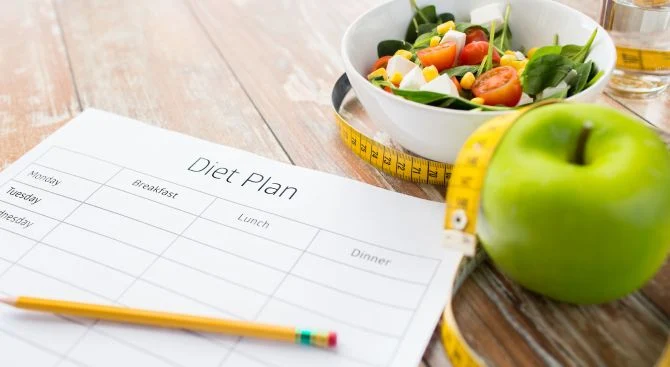10 Ways to Improve Your Diet for Better Health

Eating healthy and maintaining a balanced diet is important for overall wellbeing. An improved diet can provide energy, help you maintain a healthy weight, and reduce the risk of chronic illnesses like heart disease, diabetes and cancer. Making simple changes to your regular eating habits can go a long way in boosting your health. Here are 10 effective ways you can improve your diet:
1. Eat More Fruits and Vegetables
Fruits and vegetables should make up a significant portion of your daily diet. They are packed with essential vitamins, minerals, fiber and plant compounds that offer a wide range of health benefits. Try to aim for at least 400g per day and eat a variety of colors to get different nutrients. Keep frozen, canned and dried fruits and veggies on hand for quick additions to meals.
2. Choose Whole Grains
Refined grains like white bread, pasta and rice have the bran and germ removed, stripping away beneficial nutrients. Whole grains like whole wheat, oats, brown rice, quinoa and barley retain these nutritious parts and keep their fiber content intact. Whole grains provide antioxidants, protein, vitamins and minerals that refined grains lack. Aim to swap out refined grains for whole grain options.
3. Eat More Healthy Fats
Not all fats are bad - some are necessary for good health. Swap out unhealthy trans and saturated fats for monounsaturated and polyunsaturated fats found in olive oil, avocados, nuts, seeds and fatty fish like salmon. Healthy fats improve cholesterol levels and reduce inflammation. Avoid hydrogenated oils and limit intake of processed foods high in saturated fat.
4. Choose Lean Proteins
Protein provides essential amino acids needed for building muscle, bone and tissue. Lean protein sources are lower in unhealthy saturated fat. Include fish, skinless poultry, eggs, legumes, nuts and seeds in your diet for a healthy dose of protein. Limit red meat and processed meats like bacon and sausage which are high in saturated fat.
5. Reduce Salt Intake
Most people consume way more sodium than the recommended daily amount, raising blood pressure and heart disease risk. Limiting salt intake to less than 2300mg per day can benefit heart health. Avoid adding extra salt when cooking, limit processed foods high in sodium, and flavor food with herbs and spices instead.
6. Stay Hydrated
Drinking enough water is vital for overall health. Adequate hydration aids digestion, keeps you energized, maintains mental clarity and helps remove wastes and toxins from the body through urination and sweating. Drink at least 8 glasses of water per day and more if you are active. Fruits and veggies also add to your fluid intake.
7. Limit Sugar Intake
Foods like candy, soda, baked goods and other sweets are high in added sugars and provide empty calories with little nutritional value. Excess sugar is linked to weight gain, diabetes and heart disease. Curb sugar cravings by reducing your intake - limit sugary desserts, choose unsweetened beverages and check labels for hidden added sugars.
8. Don't Skip Breakfast
Starting your day with a nutritious breakfast helps energize you and prevents overeating later in the day. A balanced breakfast includes fiber, protein and complex carbs - try oatmeal with fruit and nuts, a vegetable omelet or Greek yogurt with berries. Skipping breakfast can throw off your circadian rhythms and metabolism.
9. Monitor Portion Sizes
Overeating is easy when portions are too big. Use smaller plates, weigh and measure portions, or compare to visual cues like a deck of cards to judge serving sizes. Avoid all-you-can-eat buffets and mega-sized menu items that encourage overeating. Listen to hunger cues and stop when you feel satisfied, not stuffed.
10. Develop a Routine
Establishing regular eating and exercise habits is key to maintaining a healthy lifestyle long-term. Plan your meals weekly and prep food in advance to prevent impulse decisions. Set reminders to exercise and make time for meal prep. Involve family and friends for accountability. Making smart eating a routine habit will benefit your health.
Improving your diet doesn't have to be complicated. Small steps like eating more whole foods, monitoring portions and limiting processed items can go a long way. Focus on variety, moderation and balance. Be sure to make changes at a pace you can maintain - aim for consistency above perfection. With some simple substitutions and smart planning, anyone can transition to a healthier diet.
Post a Comment